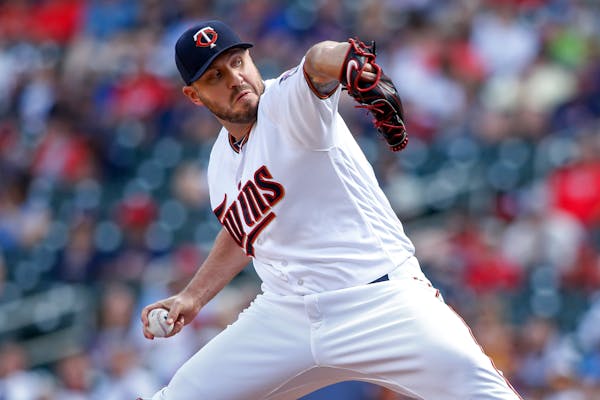The Twins were 8-20 when Star Tribune columnist Chip Scoggins penned the column that gave us the line of the year: "Total system failure." It was uttered by Twins owner Jim Pohlad in the context of describing all that had gone wrong in the first month of the season for a team that had playoff aspirations going into the year.
The full money quote, in case you forgot: "We've been at this for a little while … the owner can't do a whole lot. But what could Terry (Ryan) do? Or what could Paul (Molitor) do? I just don't know at this point. It's just a total system failure, so to speak."
In some ways, Pohlad should be lauded for the admission that he doesn't know. What we tend to think of as weakness — saying we don't know why something is wrong or how to fix it instead of offering empty assurances or meaningless threats — takes a certain type of strength that is uncommon.
The problem lies more with this fact: the Twins have actually tried a lot of things, mostly since that first month. They've brought up young players. They've signed reclamation projects like Robbie Grossman who have actually contributed. Molitor has trotted out a billion lineup combinations. They have demoted underperforming pitchers and benched underachieving veterans. Short of a mid-year blood-letting of coaches or front office staff … or a meaningful trade (the latter being an avenue they likely will and should explore as the summer lurches forward), they've actually probably done about all they can do since "Total system failure" entered our lexicon.
If the first month of the season was defined by a wait-and-see approach, the second month has been a more frantic search for anything that might get them out of this mess. And all it has done is proven Pohlad correct on two fronts: this is a total system failure, and there's no easy way out of it because an answer has not presented itself.
The point hit home when I discovered this bit of awful symmetry late last night: the Twins were 8-20 before the "Total system failure" column and they are exactly 8-20 since then.
The total adds up to 16-40, and the two halves are equally rotten parts of the same apple. Sometimes it's the pitching. Sometimes it's the hitting. Sometimes it's the defense. Sometimes it's all three. Sometimes none of it is all that bad and they still lose. Sometimes the Twins get a little something going (each 8-20 stretch was marked by a separate four-game winning streak). A lot of times the result is somewhere between semi-encouragingly bad and comically bad.
Said Pohlad a month ago: "I believe that somebody on this team has to step up as individuals and start winning some games for us. I don't mean the team. I mean individuals have to step up and win games. They do on other teams. We've got to do it for our team."
The thing is, on the whole, you don't the idea that the players are loafing or don't care. When Twins pitchers give up 11 homers in a four-game series, it's not because they're trying to fail. They just haven't been close to good enough. If last year's 83-79 team was a "greater than the sum of its parts" kind of outfit, this year's team has been the exact opposite.
You also got the sense from Pohlad a month ago that any major shakeup won't come until the offseason — if it comes at all.
What we know for sure is that if we keep measuring the season in 8-20 increments, the Twins will lose roughly 116 games (while winning 46). We're more than one-third of the way into the season, and I've stopped using the caveat "which isn't likely to happen" when describing the Twins' awful pace.
As David Brauer said on Twitter last night after I tweeted the 8-20/8-20 Total system failure symmetry:
"That's what total means, Michael."

This retired journalist changed professional wrestling from Mankato

All-Metro Sports Awards: Here are the 2023 winners

